 For the last decade or so, my wife and I have had a running joke about how she loves the Foo Fighters but doesn’t know any of their songs. The truth is, there are a lot songs that, when she hears them, she always asks “who sings this?” In the end, it is the Foo Fighters, and she says, “oh yeah, I really like this one.” They were a band that I always assumed I would see in concert but seemed to always put it off whenever they toured. Needless to say, I was stunned and saddened when I heard the news late last week that Taylor Hawkins, drummer for the Foo Fighters, died while on tour in South America. From all the tributes pouring in, it sounds like was one of the good guys of rock n’ roll. And now on to this week’s logistics news.
For the last decade or so, my wife and I have had a running joke about how she loves the Foo Fighters but doesn’t know any of their songs. The truth is, there are a lot songs that, when she hears them, she always asks “who sings this?” In the end, it is the Foo Fighters, and she says, “oh yeah, I really like this one.” They were a band that I always assumed I would see in concert but seemed to always put it off whenever they toured. Needless to say, I was stunned and saddened when I heard the news late last week that Taylor Hawkins, drummer for the Foo Fighters, died while on tour in South America. From all the tributes pouring in, it sounds like was one of the good guys of rock n’ roll. And now on to this week’s logistics news.
- FedEx is testing electric carts for last-mile delivery
- BJ’s becomes 1st wholesale club on DoorDash
- Walgreens turns to robots to fill prescriptions
- US eases tariffs on UK steel and aluminum
- UK lifts tariffs on US whiskey
- USPS is doubling its initial order of electric mail delivery trucks
- Chip shortage forces GM to pause production at Indiana plant
- Amazon ditches single-use plastic delivery bags for recyclable paper
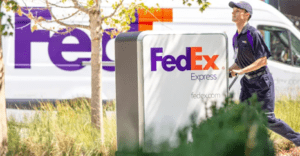 FedEx plans to test electric carts to make deliveries on its signature Express routes in 10 US and Canadian cities throughout 2022. The company hopes electric delivery carts will help address a major challenge it faces in every big city it serves: a lack of available parking. FedEx is encouraged by the early results from its pilot program. The company said its tests in New York and Toronto show a courier can deliver 15 percent more packages a day with the electric carts than with a traditional delivery model. By deploying a truck of the electric carts and by getting couriers to their routes in a separate passenger van, the company estimates it can reduce the use of trucks on each route by as much 25 percent per day. FedEx acknowledges that its sample size is small with trials in New York and Toronto so far, and the 10 cities for this year’s pilot program have yet to be finalized. But, the company sees the greatest potential upside is in international cities such as Sao Paulo, Barcelona, and Hong Kong.
FedEx plans to test electric carts to make deliveries on its signature Express routes in 10 US and Canadian cities throughout 2022. The company hopes electric delivery carts will help address a major challenge it faces in every big city it serves: a lack of available parking. FedEx is encouraged by the early results from its pilot program. The company said its tests in New York and Toronto show a courier can deliver 15 percent more packages a day with the electric carts than with a traditional delivery model. By deploying a truck of the electric carts and by getting couriers to their routes in a separate passenger van, the company estimates it can reduce the use of trucks on each route by as much 25 percent per day. FedEx acknowledges that its sample size is small with trials in New York and Toronto so far, and the 10 cities for this year’s pilot program have yet to be finalized. But, the company sees the greatest potential upside is in international cities such as Sao Paulo, Barcelona, and Hong Kong.
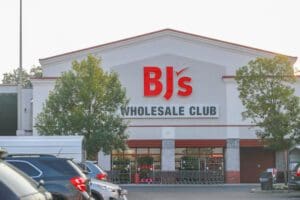 As the market for home delivery of groceries and other items continues to grow, DoorDash continues to grow its list of partners. This week, BJ’s Wholesale Club announced that it has partnered with DoorDash to provide on-demand grocery delivery from all 226 BJ’s locations across 17 eastern states. BJ’s is the first wholesale club available on the DoorDash marketplace. In addition to BJ’s members now having on-demand access to thousands of items from the retailer, non-members will gain entry into the traditionally membership-based club. In addition to BJ’s now being available for orders on DoorDash’s grocery marketplace, the strategic partnership also enables same-day delivery from BJs.com powered by DoorDash Drive, DoorDash’s white-label fulfillment platform that powers direct delivery for any business. All BJ’s locations will be available on DashPass, DoorDash’s membership program that offers members unlimited $0 delivery fees on eligible DashPass orders. DashPass members can use these benefits on eligible grocery orders with a subtotal of $25 or more from BJ’s.
As the market for home delivery of groceries and other items continues to grow, DoorDash continues to grow its list of partners. This week, BJ’s Wholesale Club announced that it has partnered with DoorDash to provide on-demand grocery delivery from all 226 BJ’s locations across 17 eastern states. BJ’s is the first wholesale club available on the DoorDash marketplace. In addition to BJ’s members now having on-demand access to thousands of items from the retailer, non-members will gain entry into the traditionally membership-based club. In addition to BJ’s now being available for orders on DoorDash’s grocery marketplace, the strategic partnership also enables same-day delivery from BJs.com powered by DoorDash Drive, DoorDash’s white-label fulfillment platform that powers direct delivery for any business. All BJ’s locations will be available on DashPass, DoorDash’s membership program that offers members unlimited $0 delivery fees on eligible DashPass orders. DashPass members can use these benefits on eligible grocery orders with a subtotal of $25 or more from BJ’s.
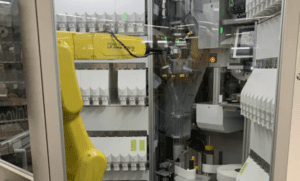 In a move to free up pharmacists to take on more responsibilities, Walgreens is turning to robots to fill prescriptions. Inside of a large facility in the Dallas area, they fill thousands of prescriptions for customers who take medications to manage or treat high blood pressure, diabetes, or other conditions. Each robot can fill 300 prescriptions in an hour, the company said — roughly the same number that a typical Walgreens pharmacy with a handful of staff may do in a day. Walgreens is opening the automated, centralized hubs to keep up in the fast-changing pharmacy industry. By 2025, as much as half of Walgreens’ prescription volume from stores could be filled at the automated centers, said Rex Swords, who oversees facilities as Walgreens’ group president of centralized services, operations and planning. That will free up more of pharmacists’ time to provide health care.
In a move to free up pharmacists to take on more responsibilities, Walgreens is turning to robots to fill prescriptions. Inside of a large facility in the Dallas area, they fill thousands of prescriptions for customers who take medications to manage or treat high blood pressure, diabetes, or other conditions. Each robot can fill 300 prescriptions in an hour, the company said — roughly the same number that a typical Walgreens pharmacy with a handful of staff may do in a day. Walgreens is opening the automated, centralized hubs to keep up in the fast-changing pharmacy industry. By 2025, as much as half of Walgreens’ prescription volume from stores could be filled at the automated centers, said Rex Swords, who oversees facilities as Walgreens’ group president of centralized services, operations and planning. That will free up more of pharmacists’ time to provide health care.
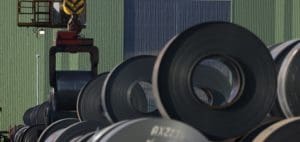 The United States reached a deal with the United Kingdom to partially lift tariffs on steel and aluminum exports from the UK beginning June 1, the two countries announced Tuesday. The deal eases duties imposed in 2018 by former President Donald Trump. Trump imposed 25 percent tariffs on steel imports and 10 percent tariffs on aluminum imports as part of a strategy to prioritize domestic production and address an overcapacity of steel in China. The deal also requires UK-based steel producers owned by companies in China to undergo a financial audit to evaluate whether there are any market distorting practices that “would materially contribute to non-market excess capacity of steel,” according to a statement. Aluminum shipments are subject to novel “smelt and cast” provisions, and producers must prove that products contain no aluminum from China, Russia, or Belarus.
The United States reached a deal with the United Kingdom to partially lift tariffs on steel and aluminum exports from the UK beginning June 1, the two countries announced Tuesday. The deal eases duties imposed in 2018 by former President Donald Trump. Trump imposed 25 percent tariffs on steel imports and 10 percent tariffs on aluminum imports as part of a strategy to prioritize domestic production and address an overcapacity of steel in China. The deal also requires UK-based steel producers owned by companies in China to undergo a financial audit to evaluate whether there are any market distorting practices that “would materially contribute to non-market excess capacity of steel,” according to a statement. Aluminum shipments are subject to novel “smelt and cast” provisions, and producers must prove that products contain no aluminum from China, Russia, or Belarus.
 The aforementioned deal to partially lift tariffs on steel and aluminum also affects other industries. The 2018 tariffs on US goods like whiskey, peanut butter, and jeans were a retaliatory response to the Trump administration’s taxes on steel and aluminum from the EU, which at the time included the UK. Well, once the US lifted its tariffs, the British government said it would end the 25 percent tariff that had been imposed on these goods. The deal goes into effect on June 1, 2022, establishing the return of duty-free trade in spirits across the Atlantic. The news provides additional relief for US producers who say that the 2018 tariffs caused a “significant slump” for exports in 2019 and 2020. EU tariffs impacting whiskey were lifted in January 2022, and in March 2021, an agreement between the EU and US lifted tariffs for US wine, along with certain other domestic spirits.
The aforementioned deal to partially lift tariffs on steel and aluminum also affects other industries. The 2018 tariffs on US goods like whiskey, peanut butter, and jeans were a retaliatory response to the Trump administration’s taxes on steel and aluminum from the EU, which at the time included the UK. Well, once the US lifted its tariffs, the British government said it would end the 25 percent tariff that had been imposed on these goods. The deal goes into effect on June 1, 2022, establishing the return of duty-free trade in spirits across the Atlantic. The news provides additional relief for US producers who say that the 2018 tariffs caused a “significant slump” for exports in 2019 and 2020. EU tariffs impacting whiskey were lifted in January 2022, and in March 2021, an agreement between the EU and US lifted tariffs for US wine, along with certain other domestic spirits.
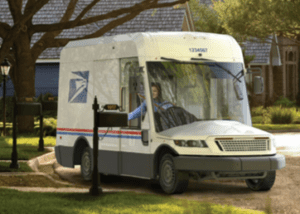 The United States Postal Service announced its initial order of 50,000 next-generation delivery vehicles, 10,019 of which will be battery-electric vehicles. Originally, the postal service said it would purchase 165,000 next-generation mail trucks, only 10 percent of which will be battery-electric vehicles. President Joe Biden and congressional Democrats urged the agency to increase the number of EVs, but USPS determined there was no legal reason to change its plans. Now, the postal service says it will increase its initial order of EVs from 5,000 to 10,019, determining it “makes good sense from an operational and financial perspective.” The question remains whether USPS will continue to purchase EVs. If the agency follows through on the full 165,000 vehicle purchase as allowed under the contract with Oshkosh, it would still need to acquire 6,500 additional EVs in order to meet the 10 percent threshold.
The United States Postal Service announced its initial order of 50,000 next-generation delivery vehicles, 10,019 of which will be battery-electric vehicles. Originally, the postal service said it would purchase 165,000 next-generation mail trucks, only 10 percent of which will be battery-electric vehicles. President Joe Biden and congressional Democrats urged the agency to increase the number of EVs, but USPS determined there was no legal reason to change its plans. Now, the postal service says it will increase its initial order of EVs from 5,000 to 10,019, determining it “makes good sense from an operational and financial perspective.” The question remains whether USPS will continue to purchase EVs. If the agency follows through on the full 165,000 vehicle purchase as allowed under the contract with Oshkosh, it would still need to acquire 6,500 additional EVs in order to meet the 10 percent threshold.
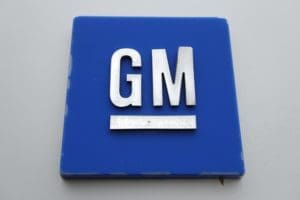 The auto industry continues to face supply chain issues more than a year after a global chip shortage first emerged in late 2020. Earlier this week, General Motors announced that it is shutting down its pickup truck factory in Fort Wayne, Indiana, for two weeks next month because the company has run short of computer chips. Chip supplies have improved during the first three months of this year compared with 2021, GM said, improving production and deliveries in the first quarter. But there’s still uncertainty in getting supplies from chip manufacturers. The Fort Wayne plant will be closed the weeks of April 4 and 11. It has been running on three shifts per day making Chevrolet Silverados and GMC Sierra light duty pickups. The plant employs more than 4,000 blue collar workers. Throughout the chip shortage, GM has sent most of the semiconductors it gets to pickup truck and large SUV factories, as those are the company’s most profitable vehicles.
The auto industry continues to face supply chain issues more than a year after a global chip shortage first emerged in late 2020. Earlier this week, General Motors announced that it is shutting down its pickup truck factory in Fort Wayne, Indiana, for two weeks next month because the company has run short of computer chips. Chip supplies have improved during the first three months of this year compared with 2021, GM said, improving production and deliveries in the first quarter. But there’s still uncertainty in getting supplies from chip manufacturers. The Fort Wayne plant will be closed the weeks of April 4 and 11. It has been running on three shifts per day making Chevrolet Silverados and GMC Sierra light duty pickups. The plant employs more than 4,000 blue collar workers. Throughout the chip shortage, GM has sent most of the semiconductors it gets to pickup truck and large SUV factories, as those are the company’s most profitable vehicles.
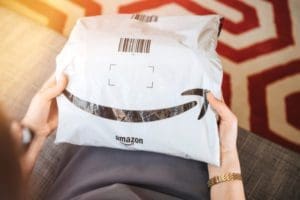 Amazon has revealed it has stopped packing products in single-use plastic delivery bags in its own distribution network in the UK as it ramps up its sustainability drive. The company is also increasing the number of products it sells that can be shipped to customers in their original packaging provided by the manufacturer, rather than being placed inside an additional cardboard box – with only an address label added. The company said it has successfully switched single-use plastic bags to recyclable paper delivery bags and cardboard envelopes in the UK for orders shipped from Amazon’s Fulfilment Centers. The move is the latest in a series of measures to optimize packaging for the products customers order most often, which Amazon said have resulted in it removing the equivalent of two billion shipping boxes in packaging material globally since 2015.
Amazon has revealed it has stopped packing products in single-use plastic delivery bags in its own distribution network in the UK as it ramps up its sustainability drive. The company is also increasing the number of products it sells that can be shipped to customers in their original packaging provided by the manufacturer, rather than being placed inside an additional cardboard box – with only an address label added. The company said it has successfully switched single-use plastic bags to recyclable paper delivery bags and cardboard envelopes in the UK for orders shipped from Amazon’s Fulfilment Centers. The move is the latest in a series of measures to optimize packaging for the products customers order most often, which Amazon said have resulted in it removing the equivalent of two billion shipping boxes in packaging material globally since 2015.
That’s all for this week. Enjoy the weekend and the song of the week, My Hero, by the Foo Fighters.

















